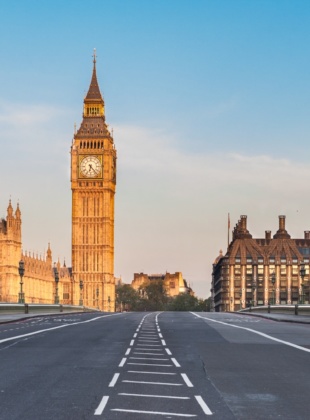New UK Electoral Hostility Barometer launched by The LSE’s EPO and Opinium

- Launch of new monthly barometer on electoral hostility in the UK
- New study finds 2/3rds of British citizens are frustrated with people who vote for parties they dislike and nearly 1/3 (30%) feel ‘hatred’
- Nearly 1/3 (31%) of voters say they have personally experienced electoral hostility
- One in five would consider ‘leaving the country’ or taking part in a revolution
The Electoral Psychology Observatory (EPO), based at the London School of Economics and Political Science (LSE), and Insight Agency Opinium have launched a new ?Hostility Barometer? for UK electoral politics. Reporting monthly for the UK, and later this year for the US, the new barometer will track the negative feelings British people hold toward those who vote differently from them, and wider feelings about the political climate. The new Barometer first wave was conducted during the 2019 European Parliament elections and uncovered a worrying picture:
- Negative feelings towards opposite voters are widespread among British citizens. 66% feel frustration towards people who vote for parties they dislike, 60% a sense of ever-growing distance, 50% feel anger, 48% disgust, 44% contempt, and 30% even a sense of hatred. The hostility affects people who vote for any party and Remainers and Leavers alike.
- Citizens feel that the atmosphere of electoral hostility in the country is worsening, with 58% being more worried about the reaction of those they disagree with politically than before.
- 31% of voters also say they have experienced electoral hostility personally. One in four Brit claims to have experienced insults (25%) and one in eight threats (12%).
- British citizens also perceived the atmosphere of the recent European Parliament election very negatively. 67% describe it as frustrating, 61% as divisive and the same proportion as tense and uncertain whilst 50% described it as hostile and 43% as poisonous. Only 14% described the atmosphere of this week?s election as pleasant and 16% as friendly.
- Many respondents feel hopelessness about the current political situation. 64% believe that people in the country will continue to grow further apart, 60% that politics always works for the same people, and 57% think that things will only get from bad to worse.
- This hopelessness is illustrated by the fact that only 27% of citizens believe that the generations of their children and grandchildren will live better than the current generation.
- Despite popular belief, Remainers tend to be far more pessimistic about the future than Leavers. For instance, 56% of leavers believe that there is hope that things will get better but only 41% of Remainers believe the same. 69% of Remainers believe that things will go from bad to worse but only 51% of Leavers.
Finally, when citizens are unhappy with politics, they are willing to consider fairly extreme responses. 30% would consider voting for a radical party (including 35% of people who voted Leave in the 2016 Referendum), 20% would consider leaving the country, and even one in five Brits (19%) would consider taking part in a revolution.
James Endersby, CEO of Opinium says: ?We are proud to be partnering again with the LSE?s EPO team to launch the new Hostility Barometer. After a divisive three years of continuing argument over Brexit, with months more to come, now more than ever it?s important to understand the impact this hostility has on our citizenry. Once we understand it, we can work to fix it. It will be long road but we must start to heal the divisions that are keeping us so distant from each other.?
Professor Michael Bruter, Director of the Electoral Psychology Observatory (EPO) at LSE says: ?We are seeing alarming levels of electoral hostility in the UK and beyond, with citizens resenting others because of the way they vote. A worrying proportion of citizens think the country?s electoral atmosphere has become poisonous. To make things worse, they expect the future to bring ever more profound hatred between segments of the population with radically divided conceptions of what Britain is and should be.?
Dr Sarah Harrison, Deputy Director of the EPO added, ?Citizens express a growing sense of democratic frustration that signals an increasing gap between their expectations of what democracy should deliver and what they think that they are getting in practice.?
See the full tables here.




